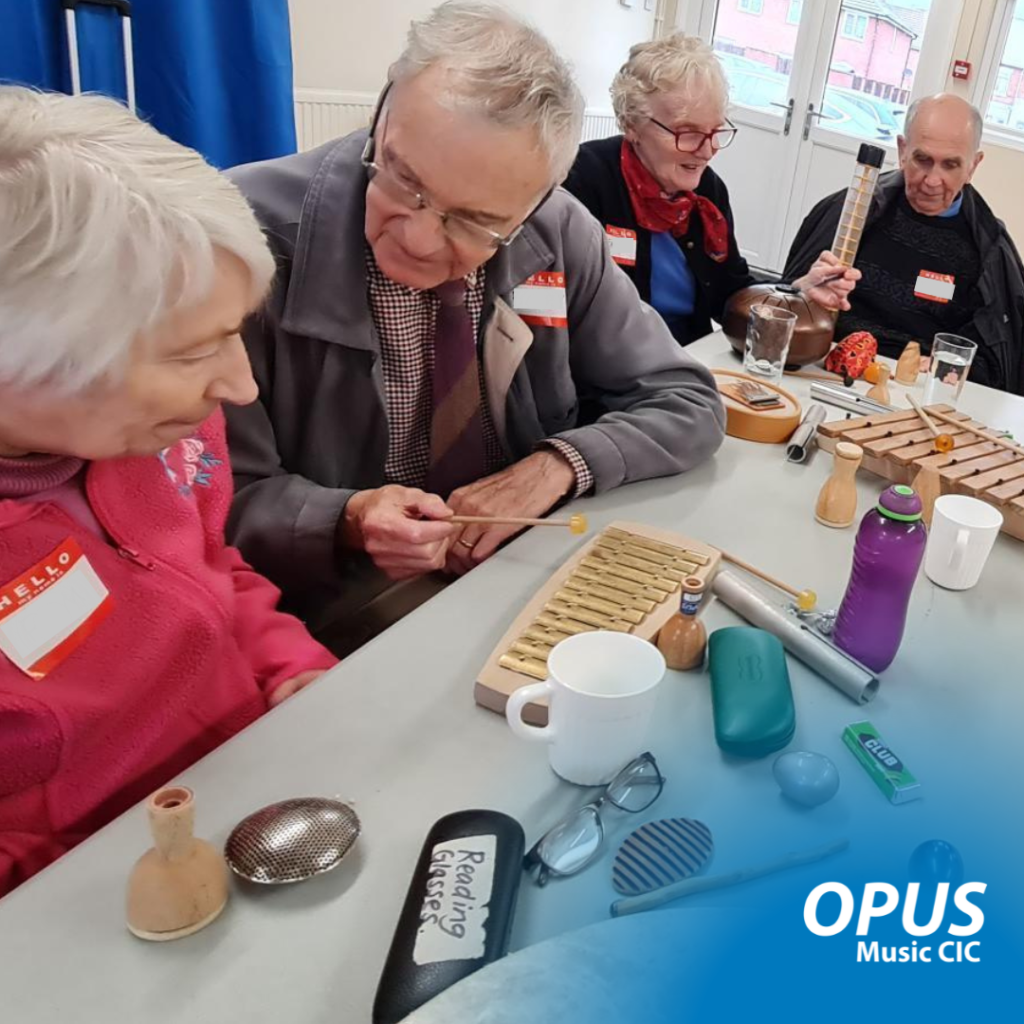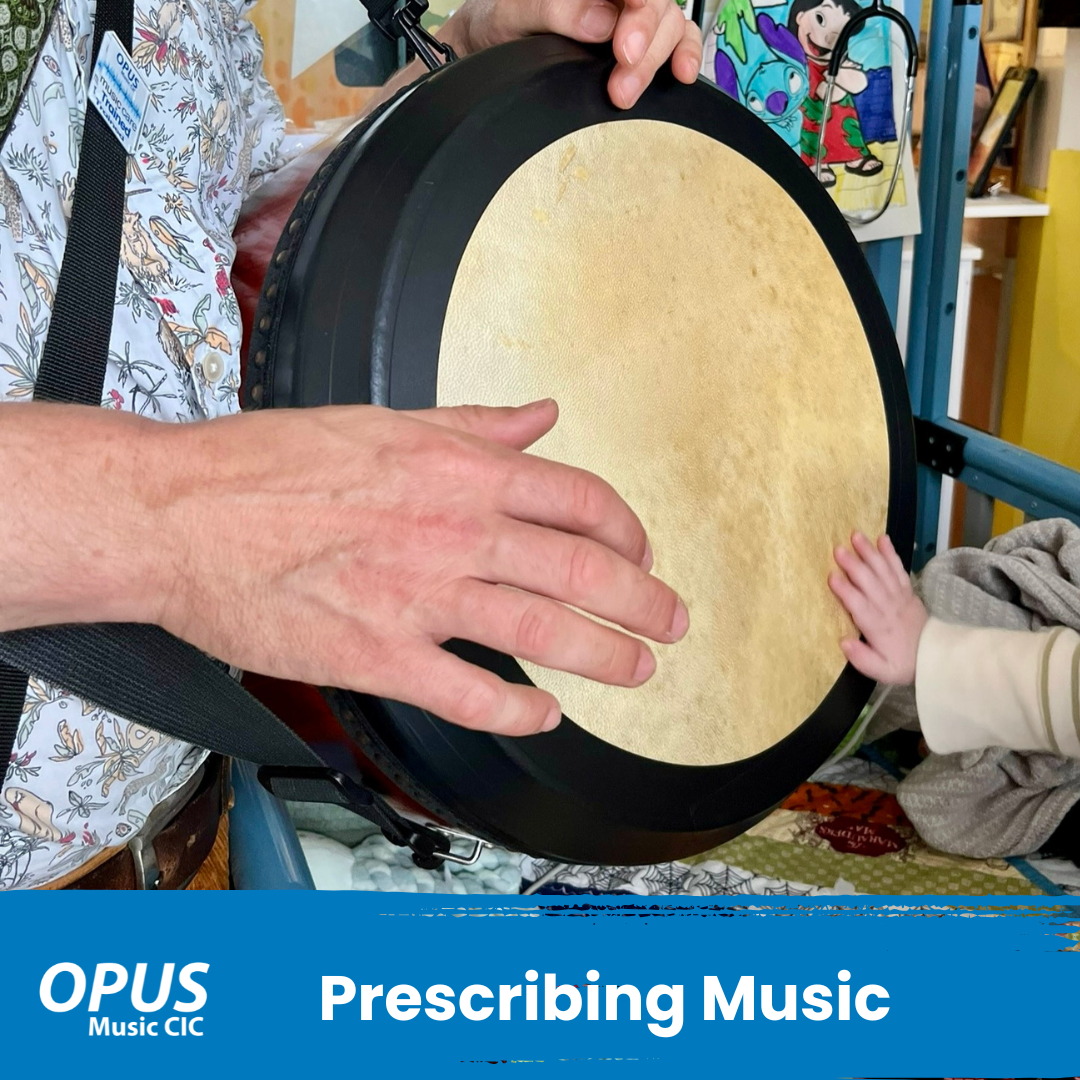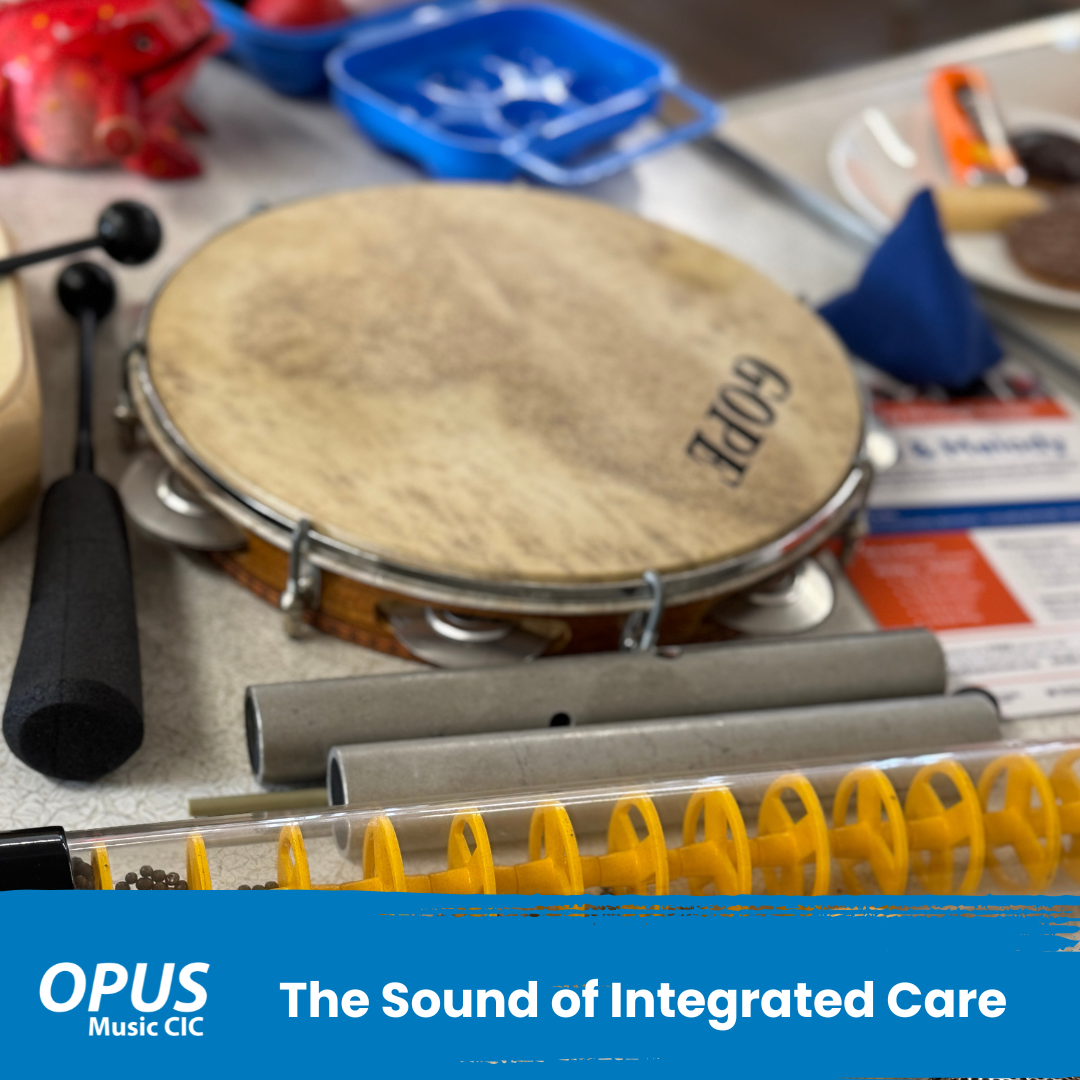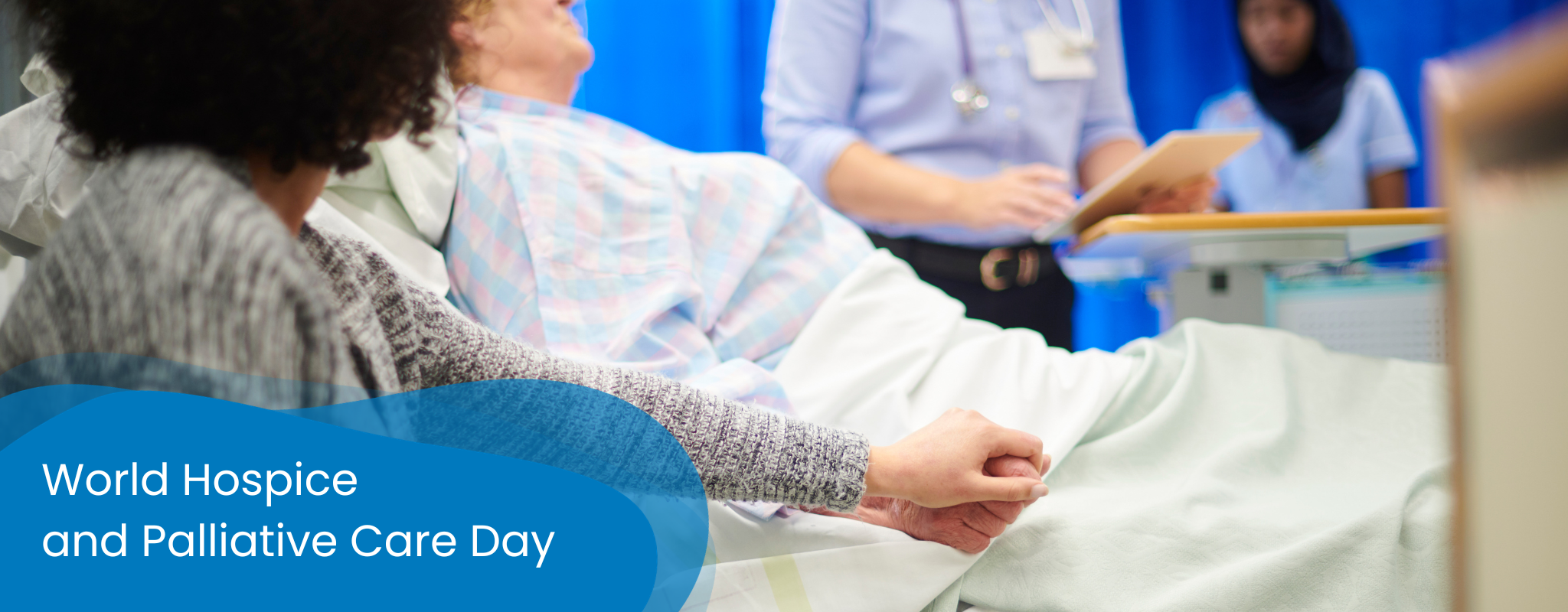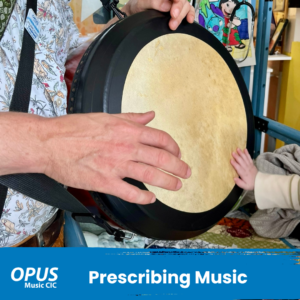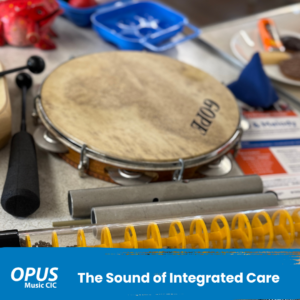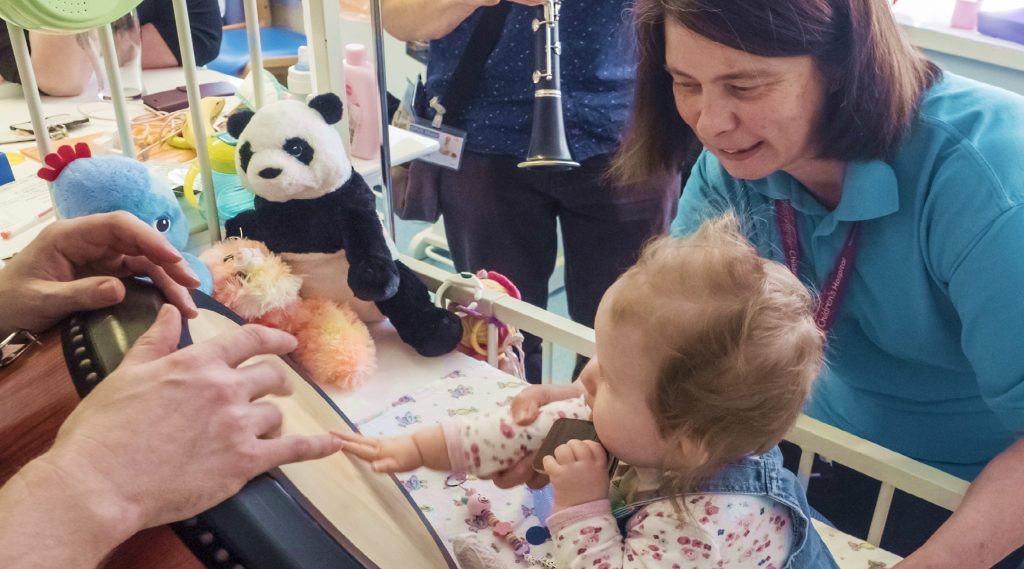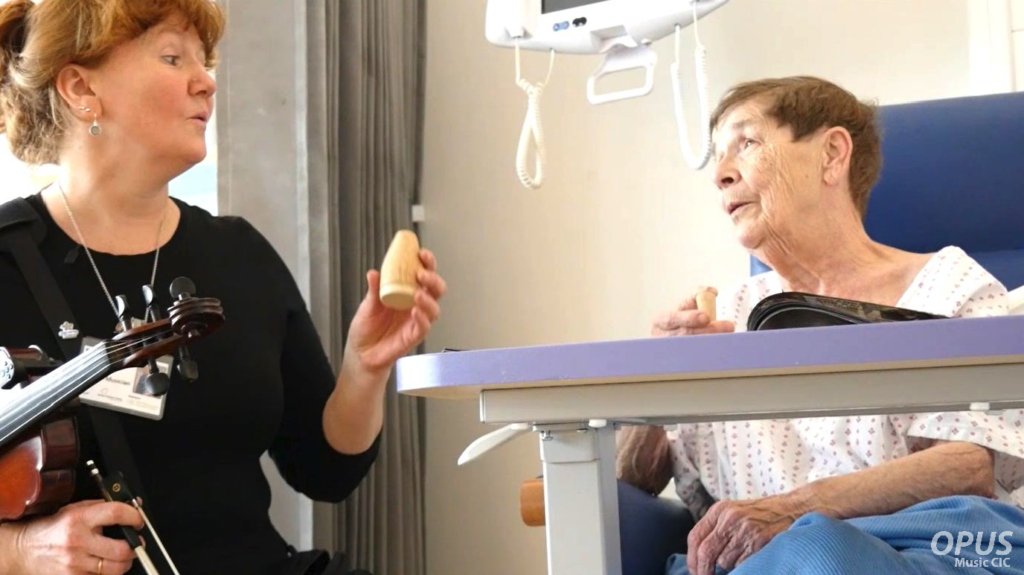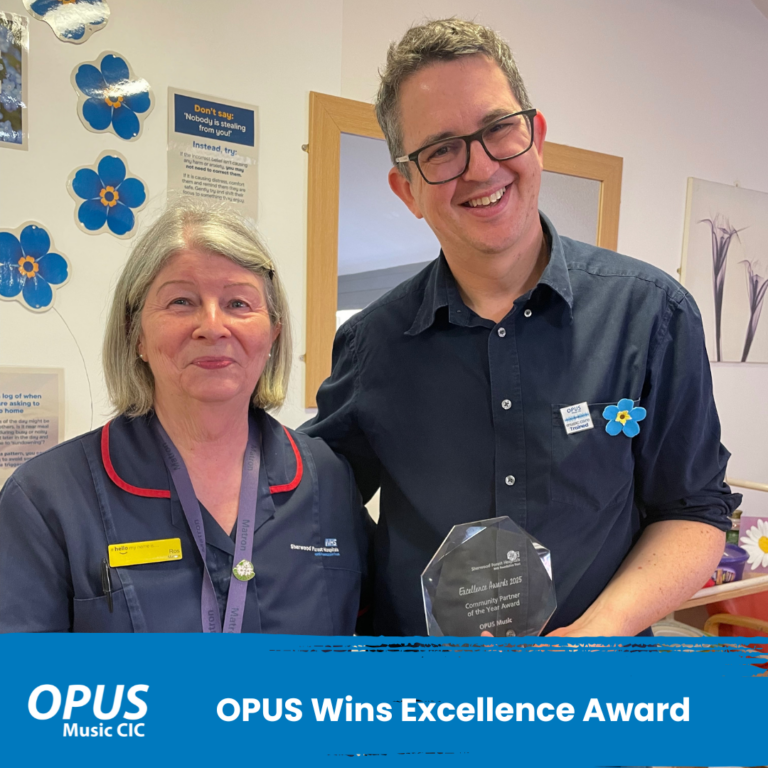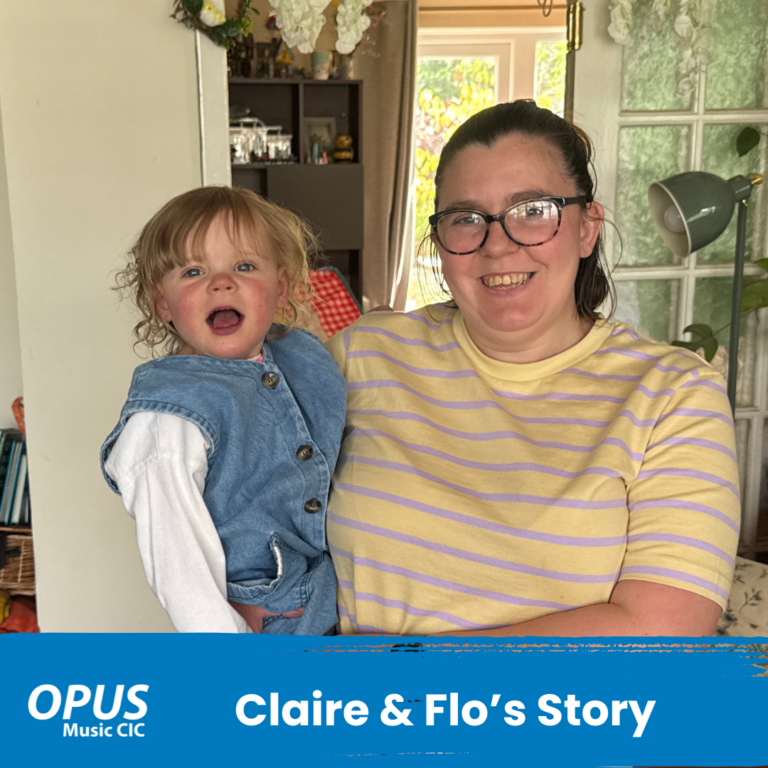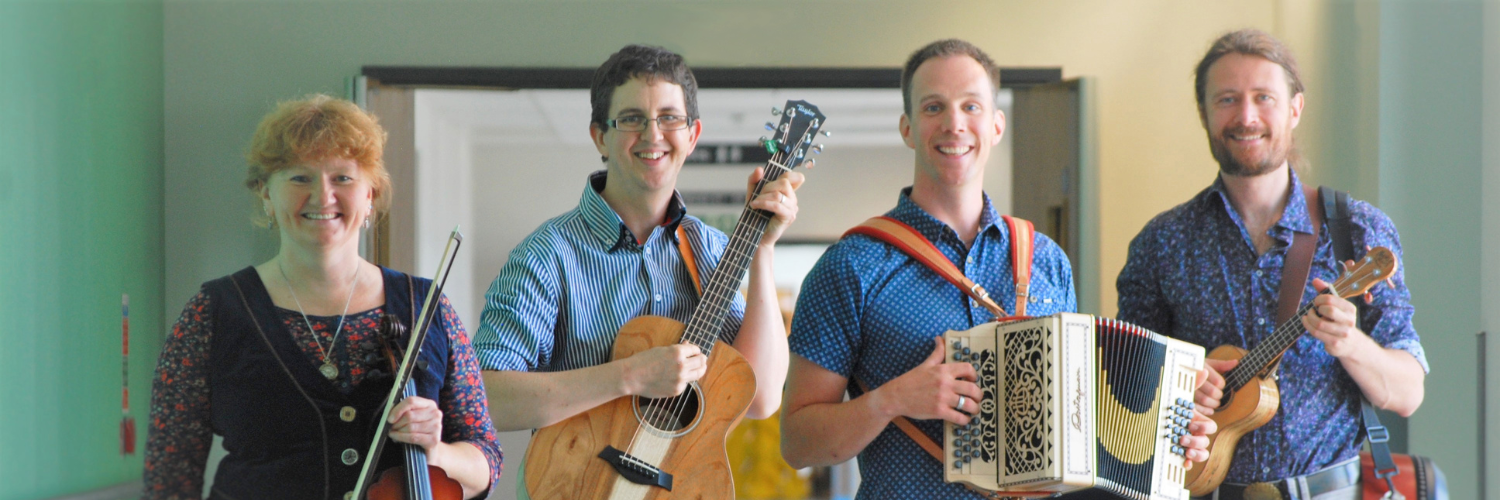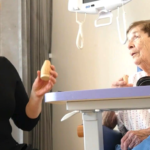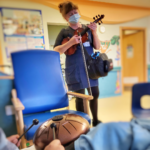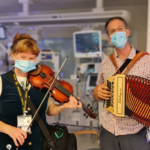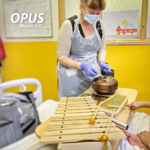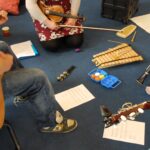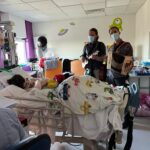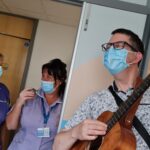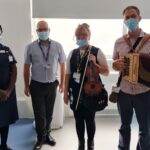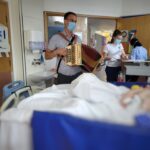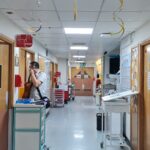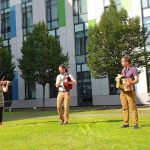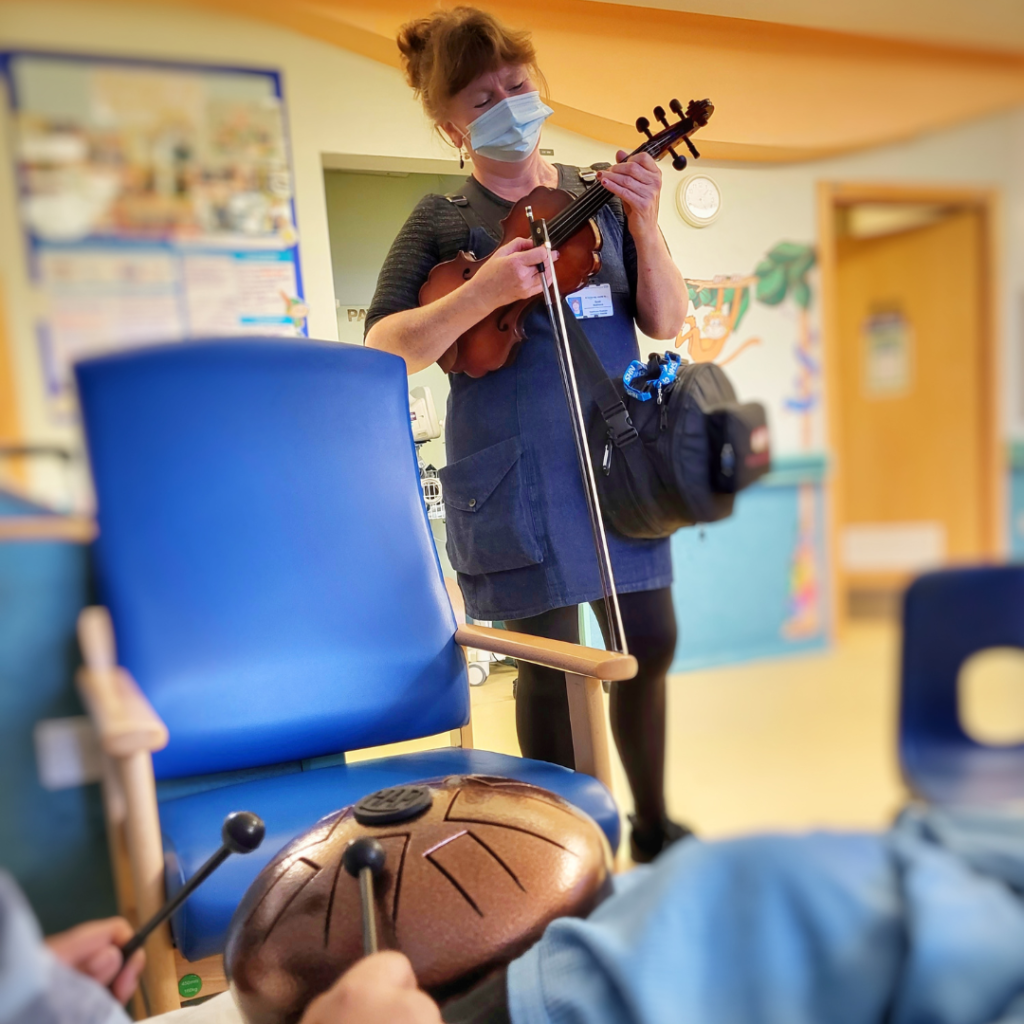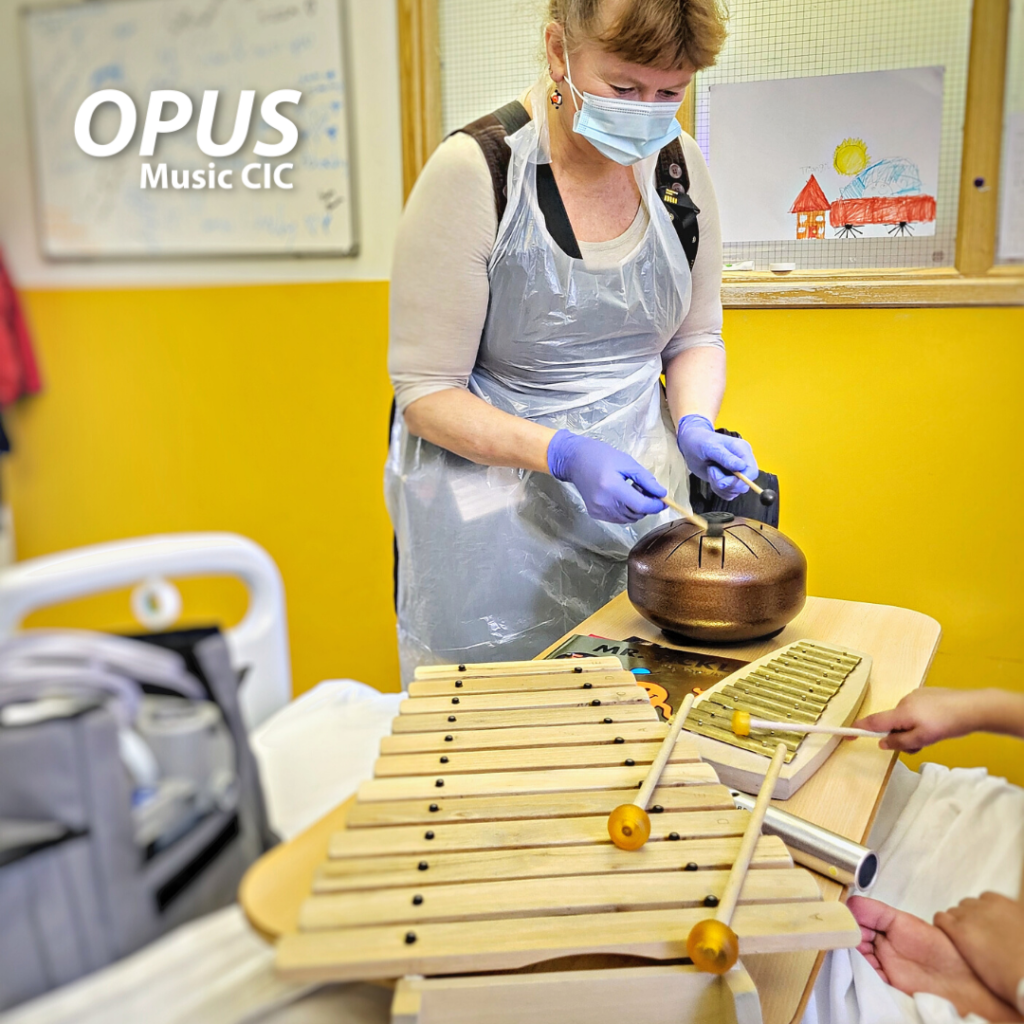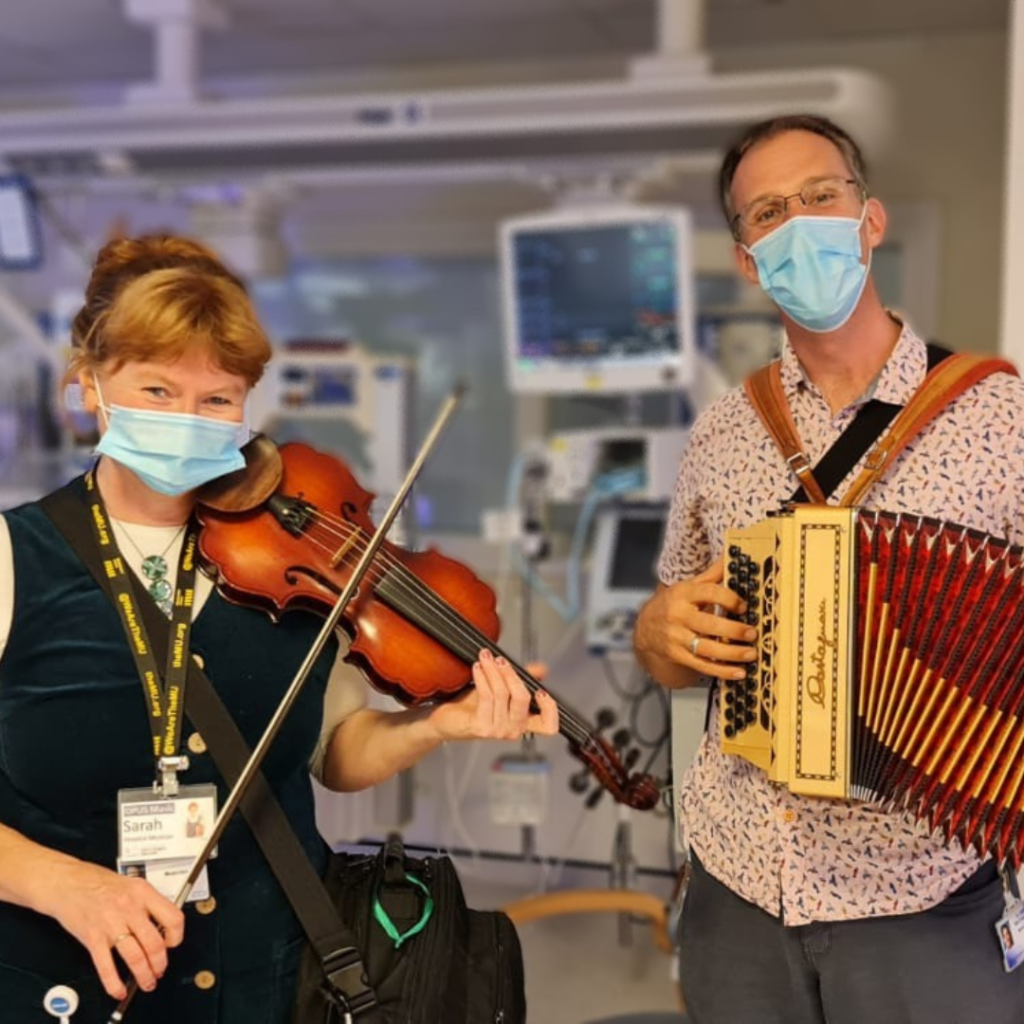OPUS Community Music Sessions
Transforming lives through music
OPUS Expands Wellbeing Groups with Arts Council England Funding
Thanks to the generous support from Arts Council England and the National Lottery Community Fund, OPUS has been able to extend its reach, creating three music for wellbeing groups in Bolsover, Ashfield, and Nottingham. These sessions provide a supportive space for participants to delve into the therapeutic benefits of music, specifically designed to cater to those with acquired brain injury, children experiencing anxiety, and families coping with dementia.
These community-based projects originated from the growing demand within healthcare and local communities. With the current spotlight on social prescribing and activities for wellbeing at the forefront, OPUS recognised the need to carve out a space for group music making sessions. OPUS wanted to empower local music makers to lead these sessions, to share their expertise in their communities, with the additional benefit of reducing the OPUS Carbon footprint. Six local musicians were invited to lead the groups, and OPUS proudly supported them in honing their skills and gaining practical experience.
Chris Doyle, a community musician, noted the unique atmosphere created in the sessions “The community music sessions give space for the participants to relax, socialise, and engage at a nearly unconscious level with sounds, songs, and beats.”
Diane, another music-maker, highlighted the success observed among young participants “It is satisfying to see the young people enjoy the sessions – their excitement, enthusiasm, and engagement is a great success week-to-week.”
The impact on community musicians has been profound, leading to improved self-esteem and some now considering a career in music in healthcare.
Over the past fifteen weeks, participants consistently expressed their enjoyment, with some describing the experience as transformative. A Social Prescribing Link Worker shared positive feedback from patients who felt the music session brought a sense of vitality.
“I just wanted to feed back that two of my patients attended the session and said it was excellent! They thoroughly enjoyed it and the carer of the gentleman I am supporting mentioned that he ‘came alive’ with the music, which she found wonderful to see.”
Participants praised the relaxed atmosphere, and older music makers found solace reminiscing about old times.
Inspired by these positive outcomes, OPUS is eager to expand its impact. Plans include increasing participant numbers, collaborating with various sectors to ensure sustainability, and utilising the expertise of the community and network of healthcare musicians.
Financial support from Derbyshire MIND charity further enables the development of a community music-making group in Bolsover. Sessions, starting in April, will focus on music-making for wellbeing, promoting social interaction to benefit mental health and support diverse needs such as loneliness and dementia.
For more information, please get in touch contact@opusmusic.org

